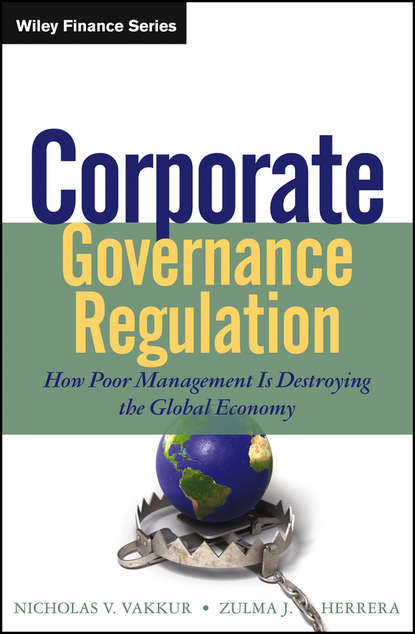
Corporate Governance Regulation. How Poor Management Is Destroying the Global Economy скачать fb2
Zulma Herrera J. - Corporate Governance Regulation. How Poor Management Is Destroying the Global Economy краткое содержание
Why U.S. corporate governance regulation has lost its way, and what must be done to improve it Modern history persuasively demonstrates the inexorable link that binds comprehensive regulation to the global economy. This important book, rather than simply recount a litany of corporate governance failures, persuasively explains why, despite policymakers' best intentions, regulation has failed in the modern era. An objective study intended for a diverse readership, Corporate Governance Regulation unveils the underlying, root causes of regulatory failure. The result: A compelling and original analysis, broadly suited for a global audience of all backgrounds. Written by published, subject-area experts, the authors carefully delineate how U.S. corporate governance regulation, beginning with Sarbanes Oxley, lacks an adequate rational basis, as may be attributed to a non-existent policy dialogue The witnessed result: A conspicuous lack of regulatory efficacy, enormous costs, coupled with paltry benefits The focus is upon reigniting a stalled, non-productive policy dialogue, by eschewing stale, overly-polemicized arguments, as needed to develop a common ground Drawing from an eclectic, analytic framework, governance experts Nicholas Vakkur and Zulma Herrera offer both the professional and global citizen alike a multi-dimensional understanding of issues critical to global economic health. Nuanced and persuasively argued, Corporate Governance Regulation represents a formidable catalyst in the elusive, ongoing quest for global economic stability.
Чтобы оставить свою оценку и/или комментарий, Вам нужно войти под своей учетной записью или зарегистрироваться



